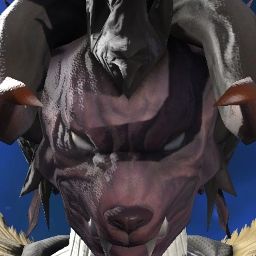Actually the things you are saying are factually inaccurate on a legal level, so lemme just slide some U.S. copyright law in the door here.
Fanfiction and fanart are a category of creative output that is generally protected by the law under the "Fair Use" doctrine of U.S. copyright law. This doctrine maintains that artists may create derivative and transformational works related to copyrighted material so long as these derivative works are not intended to "supersede or substitute" the original work and sufficiently transformational as to not be mistaken for a creation of the original copyright holder. As fanartists and fan writers have no intention or even remotely a chance of superseding or substituting their work for the original copyrighted content that inspired them, fanfiction and fanart by law are not stealing. To characterize the act of simply creating fanart and fanfiction as theft is factually false.
The selling of fanart is a grey area but does not remotely constitute the level of hypocrisy you are suggesting. Part of the Fair Use doctrine mandates that, in deciding whether something is "fair use" or not, the nature of a transformational work must be examined to determine whether it has a non-profit or commercial intent. However, even having a commercial intent does not rule out something being labelled fair use. Multiple factors weigh into the legal decision to determine whether or not a transformational work (i.e. fanart or fanfiction) meets the Fair Use criteria, including the work's degree of transformation from the original copyrighted content, the intention of the transformational work (i.e. to replace the original or not), and the potential for the transformational work to damage the profit-making capability of the original copyrighted work. Furthermore, there is no singular coherent international copyright law, so even if a work is protected in its home country, it may not be protected at all in other countries across the globe.
This is why many, many people are able to sell fanart without any corporate backlash--because the burden of proof is on the prosecution in these cases to prove that the fan work would have had serious impact on the original creator; a standard which few cases so far have been sufficiently able to prove. There are, however, numerous cases in which U.S. law has come down in favor if the commercial sale and reproduction of derivative works, such as parody novels and films, novels published in the extended universes of other series, and derivative products like companies that make Alice in Wonderland themed items with obvious homage to the Disney version of the film.
In short, fanfiction and fanart are not, legally, stealing of concept or design; nor is it even inherently against the law to profit off the fanart you create.
You know what is inherently against the law though? The seizure and reproduction of original copyrighted material without any degree of transformation. That whole "Nobody gets hurt when I upload someone else's art on my social media and claim I drew it?" That's called intellectual property theft, and it's a crime.
The critical difference here is the act of creation. A fanartist or fan writer creates something of his or her own that just happens to be inspired by the concepts and designs of another creator. They do not trace, copy-and-paste, or in any way claim that the concepts or designs utilized in the works are their own original designs. They transform and derive new works from existing works, but a new work is still being created.
An art thief simply takes a work from someone else and uploads it for their own personal gain (whether monetary or simply for attention) without transforming the original work in any meaningful way. They take, wholesale, the work of the original artist and claim it as their own. There is no new work being created--just one work being stolen and republished under a new "artist's" name.
U.S. copyright law sees a clear difference between these things. So should you.
(By the way, to make this remotely relevant to the OP: I'll just echo what others have said--it's not the commissions that are the issue, especially if you're only drawing people's original characters and not FFXIV's iconic NPCs; it's the advertising through the game that you should avoid.)
-
10-24-2018 09:14 AM #41Player

- Join Date
- Mar 2014
- Posts
- 576
- Character
- Yehn'zi Panipahr
- World
- Coeurl
- Main Class
- Dark Knight Lv 90
(14)Last edited by sarehptar; 10-24-2018 at 10:22 AM.
-
10-24-2018 10:33 AM #42Player
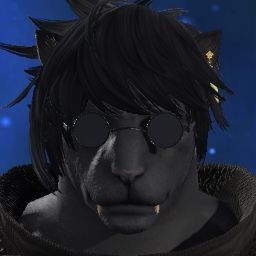
- Join Date
- May 2015
- Location
- Ishgard
- Posts
- 3,089
- Character
- Arctura Fengari
- World
- Balmung
- Main Class
- Dancer Lv 90
I would say that it’s a gray area.
- Doing commissions for real money or Gil is fine.
- Advertising the prices in shout chat, or forums is not fine.
- Shouting invites to a stream however I have seen, and as long as you’re not obnoxious, people do this regularly. Usually through a linkshell.
- Posting fan art in the forums might be allowed. Square Enix does host yearly art contests. Perhaps the easiest way would be to make some kind of fan art thread, so that it benefits all artists. I see draw your own character posts once in awhile.(1)
-
10-24-2018 12:30 PM #43Player
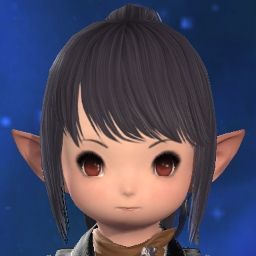
- Join Date
- Jul 2014
- Posts
- 2,064
- Character
- Ali Lifesaver
- World
- Gilgamesh
- Main Class
- Marauder Lv 80
Fair use is determined on a per case basis so on the strict legal side there's no "generally", however the majority of original artists out there wouldn't pursue fan art creators because that's shooting themselves in the foot, in a way fan art is free advertisement and unless the fan creator is messing with the business of the copyright holder you very rarely will find yourself at the point where a court will have to determine if your work is fair use or not, this as long as you don't mess with big guys like Disney.
So the fact are that :
At he base level fan art is creating a derivative version of a copyrighted work, which is bad.
It can go from bad to grey if a court determines your work falls under fair use (note that selling fan art will work against you here, that's commercial gain).
Original content creators very rarely go after fan art creators because they gain benefit from it and it's generally not worth the legal cost, so in the real world you're quite safe selling fan art or all the other derivative stuff being sold on places etsy.
Now this is about the legal, on the in-game advertising side I don't think they have made any specific statement whether they allow advertising or not (it is RMT even if no gil is involved, see also people selling runs for real money), but because of what I said before of fan art benefiting them I highly doubt they would go after artists advertising, but if you want a peace of mind you can send a GM call and ask for their stance on advertising commissions in-game.(0)
-
10-24-2018 01:25 PM #44Player

- Join Date
- Mar 2014
- Posts
- 576
- Character
- Yehn'zi Panipahr
- World
- Coeurl
- Main Class
- Dark Knight Lv 90
You're right that this is an issue that only very, very rarely arises so there's really no need to split hairs, but for posterity's sake, this is the opposite of how the process actually works.
In the case that a creator discovers a fan work and feels it is not fair use, it is up to the complainant, typically the corporation or the creator, to challenge the legality of the fan work and prove that it is a copyright infringement. In essence, fanart is innocent until proven guilty. In copyright infringement cases for something like fan art, the burden of proof would be, for the most part, on the prosecution to disprove the fan artist's fair use defense by successfully proving that the derivative work is 1) not sufficiently transformative, 2) intended to supersede or substitute the original work, 3) was intended for commercial profit, and 4) the profit gained by the derivative work would substantially impact the profit made by the original creator. (That's a key point--you will even have a hard time stopping people from selling fan art if you can't also demonstrate it has an impact on your own products' sales, and good luck doing that.) And because this is actually a very high set of standards to meet when it comes to presenting proof, it is very, very rarely worth the effort to pursue any legal action against fan creators--and even in cases where a creator does pursue legal action, the court rules more often in favor of the derivative artist than the original creator. So it isn't "fanart = bad until found okay in the court;" it's "fanart = not illegal until proven to be infringement." The reason that fair use is determined on a case-by-case basis is because a work only ever formally receives this label after it has been challenged.
Nevertheless, the assumption today (based on precedent and, as you note, the tacit approval of original creators because of free advertising) is usually that not-for-profit fanart is fair use. Some companies are more aggressive about protecting their copyrights (i.e. Disney), but even then, many of their copyright infringement cases are actually trademark infringement cases dealing with the use of logos and names, and many of their cases get thrown out. (Most often, they never get to court at all because major corporations have the capacity to bully derivative work creators into ceasing--whether or not ordering them to cease is actually legal.)
The idea that derivative work is inherently "bad" isn't supported by any U.S. law or policy, and indeed the significant number of hurdles placed on those attempting to disprove fair use suggests that derivative works are, to a certain extent, protected by the law. Parody, criticisms, homages both in writing and visually, and extended universe/mythos building have been part of human storytelling and art for centuries upon centuries, and are a beloved feature of our media that many legal representatives and judges have readily defended in the past.(1)Last edited by sarehptar; 10-24-2018 at 01:52 PM.
-
10-24-2018 01:31 PM #45Player

- Join Date
- Jul 2014
- Posts
- 2,064
- Character
- Ali Lifesaver
- World
- Gilgamesh
- Main Class
- Marauder Lv 80
I think you started well but reached the wrong conclusion. Leaving fan art for a bit and going back to general copyright, every work you do is automatically copyrighted, but if I steal your work it's still up to you (the creator) to demonstrate I violated your copyright, just like you said here
But that doesn't mean me stealing your work is fair game until you notice. The law requiring the owner to make a claim cannot give you a conclusion that it's fair game until the owner notices, and this can be applied to fan art as well.In the case that a creator discovers a fan work and feels it is not fair use, it is up to the complainant, typically the corporation or the creator, to challenge the legality of the fan work and prove that it is a copyright infringement.
EDIT: What I meant to say is "innocent until proven guilty" works for everything and not just fan art, but that doesn't make it legally ok to do deliberately.(0)Last edited by alimdia; 10-24-2018 at 01:35 PM.
-
10-24-2018 02:04 PM #46Player

- Join Date
- Mar 2014
- Posts
- 576
- Character
- Yehn'zi Panipahr
- World
- Coeurl
- Main Class
- Dark Knight Lv 90
But you're working with a false premise here that fanart is inherently stealing. Valid transformational and derivative works are protected by the law; they're not just "okay until someone notices," they're "okay until proven not" because simply creating a genuinely transformational/derivative work is not considered in any way a form of theft. Profit is a whole other layer to the issue, but it doesn't change the fact that just creating derivative works is not stealing.
You're saying: someone steals -> they're innocent until proven guilty because of our rules, but -> they just got lucky they were found innocent/we really know they're guilty because fanart is theft in the first place. That's just not the case.
It's: someone created a derivative work which is not inherently illegal -> they were challenged -> the court ruled in favor of the artist because their use was fair all along. (Or: the court rules against the artist because their work was not enough of a transformation or deliberately/negligently intended to supplant the original--which means it wasn't a transformational work in the first place.)
When you're judging a copyright violation case in which the issue of fair use has been invoked, the determination is not "Is this use fair now?" but "Was this use fair from the beginning?" Coming at this issue from the mindset that derivative works are automatically stealing and have to be proven fair in court to "become grey" is literally the dead opposite of how our justice system works.
I mean, using a real world example, you're conflating two completely different acts here:
1) I enter your house, see a painting you have just finished, grab the painting, walk out of your house, hang it on my wall and call it my own. That's theft and it's obviously illegal.
But you're claiming this second scenario is also theft:
2) I enter your house, admire a painting you just finished, and using my own art skills, I paint a painting depicting some of the same elements as your painting, albeit in my own style and with my own creativity (such as unique poses for the people in the painting, different colors, a different setting, etc.). I then declare that this new painting is my creation, while still informing everyone that the original idea came from your painting.
These two situations are completely different, and the second one simply isn't theft unless my painting is so close to yours as to be a) indistinguishable or b) a noticeable effort to exactly reproduce your original painting such as tracing. So long as I didn't deliberately copy the tangible or identifying elements of your specific painting with the intention of exactly reproducing it, we could go to court, and my painting would likely be found in fair use by the judge... because it was never a theft in the first place.
The issue I was trying to point out in your original post was the "derivative = bad" premise, which is false by current U.S. law.(1)Last edited by sarehptar; 10-24-2018 at 02:56 PM.
-
10-24-2018 02:08 PM #47Player
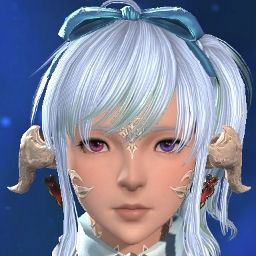
- Join Date
- Sep 2016
- Location
- Ul'dah, Faerie
- Posts
- 81
- Character
- Yui Tenshi
- World
- Faerie
- Main Class
- Viper Lv 100
Art commission is not RMT as it does not involve gil/items in game. Using the game or forums to sell services (which includes commissioning works) is against the ToS. Posting works just for show is not against the ToS but could be considered spam, and is against community and game policies especially if they're not FFXIV related.
(2)
-
10-24-2018 03:05 PM #48Player

- Join Date
- Jul 2014
- Posts
- 2,064
- Character
- Ali Lifesaver
- World
- Gilgamesh
- Main Class
- Marauder Lv 80
Sorry sarehptar, but copyright laws are very explicit about the right to create derivative works belonging to the copyright owner, this is not my opinion, it's a fact.
Fair use here is an exception that can be validated by a judge, you can't say clear cut that commercializing derivative works of someone else's copyright is fair use.Right to Prepare Derivative Works
Only the owner of copyright in a work has the right to prepare, or to authorize someone else to create, an adaptation of that work. The owner of a copyright is generally the author or someone who has obtained the exclusive rights from the author. In any case where a copyrighted work is used without the permission of the copyright owner, copyright protection will not extend to any part of the work in which such material has been used unlawfully. The unauthorized adaption of a work may constitute copyright infringement.
https://www.copyright.gov/circs/circ14.pdf
That said, there's another factor that supports fan art as more likely to be fair use, which is the transformative factor. The more transformative is the derivative work the less other factors will weight, and fan art tends to be different enough from the 3D models this game uses that a fair use claim would likely hold even if it's being commercialized.(0)
-
10-24-2018 03:49 PM #49Player

- Join Date
- Mar 2014
- Posts
- 576
- Character
- Yehn'zi Panipahr
- World
- Coeurl
- Main Class
- Dark Knight Lv 90
I mean, I appreciate that you have a source, but I think you've maybe missed/misread some of the things I said.
Just to address the question of fair use even though it's beside the point now anyway: Lenz v. the Universal Music Group in the 9th District Court of Appeals in 2015 determined that fair use was not just an exception to be validated by a judge but an authorized right that was a direct part of the Copyright Act of 1976, meaning it is a right that exists before, during, and after the creation of a transformational/derivative work and you do not need to seek the copyright holder's permission to do something you believe is covered by fair use.
Mostly putting aside the question of whether or not fan art even legally counts as "adaptation"... (At least as far as I am aware, copyright law traditionally labels adaptation as the literal modification of an existing work, i.e. translating a story into a new language, making a direct copy of someone's painting, or sampling a song inside another song. I.e., adaptation would be taking a screen cap of someone's character from this game and photoshopping it, but fan art may or may not be different/transformational enough to not qualify as adaptation in the first place, which is what I already noted.)Originally, as a judicial doctrine without any statutory basis, fair use was an infringement that was excused — this is presumably why it was treated as a defense. As a statutory doctrine, however, fair use is not an infringement. Thus, since the passage of the 1976 Act, fair use should no longer be considered an infringement to be excused; instead, it is logical to view fair use as a right.
I literally never said this in any post. What I stated repeatedly was that the creation of fan art and transformational works was not inherently bad, which is the problem I had with your original post (because it seemed to suggest that the mere act of creating fan art was "bad" in and of itself). But in my post right before yours, I also explicitly stated that "The selling of fanart is a grey area." I've not suggested anywhere that commercializing fan art isn't questionable; I only noted exactly what you say below, that fan art may be commercialized and still pass fair use if it's sufficiently transformational and not a hazard to the profit of the original creator.
This is what I've been saying the whole time. XD(1)Last edited by sarehptar; 10-24-2018 at 03:54 PM.
-
10-25-2018 01:43 AM #50
What is this thread.
I have a personal problem and it's with people like you spreading misinformation. You are literally trying to tell people who have picked art as more than a hobby, went to school for it, and were taught about copyright infringement, that they are wrong. Because why? Art should just be fun and we shouldn't care.(2)Fishsteaks were made



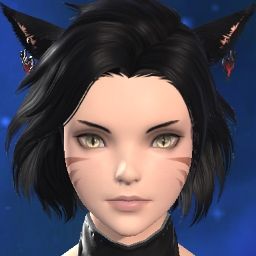

 Reply With Quote
Reply With Quote


